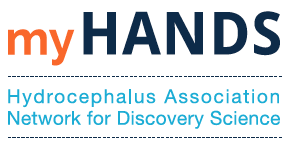Meet Our Latest Grantees
Ryann Fame, PhD
2022 Innovator Award Recipient
Title: Assistant Professor
Institution: Stanford School of Medicine
Dr. Ryann Fame aims to understand the impact of hydrocephalus-associated genes on neural progenitors during early brain development and how it affects cerebrospinal fluid (CSF) volume and regulation. The outcome of this research will be the discovery of how these genes impact the brain and understanding the relationship between disrupting neural progenitors and CSF volume, and the identification of candidate CSF biomarkers for hydrocephalus prodrome.
Olufemi Idowu, MBBS, FWACS, FACS
2022 Innovator Award Recipient
Title: Professor & Consultant Neurosurgeon
Institution: Lagos State University Teaching Hospital
Dr. Olufemi Idowuaims to study the barriers to early diagnosis and treatment of childhood hydrocephalus in low & medium-income countries through quantitative and qualitative analyses. The goal is to guide policies that will improve access to neurosurgical services and decrease morbidity in patients with childhood hydrocephalus, especially in resource-challenged countries.
Ramin Eskandari, MD
2022 Innovator Award Recipient
Title: Chief of Pediatric Neurosurgery
Institution: Medical University of South Carolina
Dr. Ramin Eskandari’s study is focused on developing a new drug, PSel-Crry 2.3, that targets P-selectin/C3complement at the site of injury to reduce posthemorrhagic hydrocephalus (PHH) and neuroinflammation, leading to improved functional recovery in a hydrocephalus model. The successful outcome of the study will provide insights into the complement system’s role in PHH and advance the field of medical therapeutics for PHH. Thank you to Team Hydro for their generous support of this grant.
This award was supported by Team Hydro.
Carolyn A. Harris, PhD
2022 Innovator Award Recipient
Title: Associate Professor
Institution: Wayne State University
- Reduce shunt obstruction in hydrocephalus patients by developing functional surface microstructures on the catheter surface to reduce astrocyte adhesion and periventricular tissue pull-in. The project uses soft lithography, computational fluid dynamics simulations, and benchtop simulation to validate the reduction of shear, pull-in, and astrocyte attachment and proliferation.
- Create an in vitro tool for molecular biologists and drug designers to study the cerebrospinal fluid (CSF) production process and fast-track pharmaceutical drug development. Her microfluidic model of the choroid plexus is used to track changes in CSF secretion with the long-term goal of improving hydrocephalus treatment through pharmaceutical strategies. This award was supported by Team Hydro.
- Create an in vitro tool for molecular biologists and drug designers to study the CSF production process and fast-track pharmaceutical drug development. Her microfluidic model of the choroid plexus is used to track changes in CSF secretion with the long-term goal of improving hydrocephalus treatment through pharmaceutical strategies. This award was funded by the Rudi Schulte Research Institute.
- Create a computational fluid dynamic model of patient-specific 3D ventricles from MRIs and test the change of CSF dynamics pre and post-shunt placement to predict potential ventricular system collapse, the effect of shunt and ependymal wall contact dynamics, and test mechanical shunt prototype improvements. This award was funded by the Rudi Schulte Research Institute.
Gabriel Haller, PhD
2022 Innovator Award Recipient
Title: Assisstant Professor
Institution: Washington University
Dr. Gabriel Haller aims to generate a detailed molecular landscape of hydrocephalus and understand the complex genetic architecture that causes it. The goal is to use human multi-omic data to shed light on the pathological events leading to hydrocephalus and to identify novel molecular biomarkers and drug targets to improve patient outcomes.
This award was supported by Team Hydro.
James (Pat) McAllister II, PhD
2022 Innovator Award Recipient
Title: Professor
Institution: Washington University in St. Louis
Dr. James ‘Pat’ McAllister aims to study key cellular and molecular mechanisms involved in neuroinflammation associated with pediatric hydrocephalus through animal models and various neuroimaging techniques. His goal is to identify pharmacological targets, develop novel surgical and bioengineering treatments, and explore strategies for neuroprotection and functional recovery.
This award is supported by Team Hydro.
Maria Lehtinen, PhD
2022 Innovator Award Recipient
Title: Professor
Institution: Boston Children’s Hospital
Dr. Maria Lehtinen aims to explore the role of an enzyme secreted by the choroid plexus in guiding oligodendrocyte maturation and myelination in the developing brain in response to intraventricular hemorrhage (IVH) and hydrocephalus. If successful, this study could lead to the identification of a new therapeutic path for IVH and hydrocephalus.







